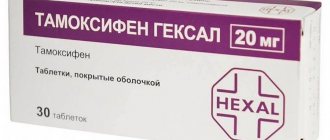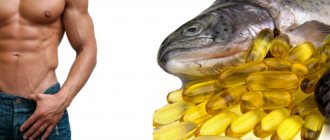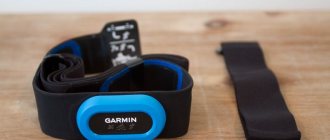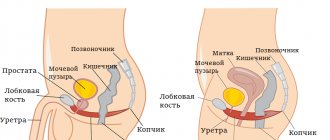Excess weight, lack of a waist, unhealthy heart and joint pain - this is often the result of poor nutrition, when the diet does not contain a source of Omega-3 essential acids, which are rich in fish oil. If you include this healthy product in your daily menu, you can get rid of the problems listed above, get into good shape, that is, lose weight.
Origin and chemical composition
Fish oil is of natural origin. This is what determines the composition, rich in useful substances. The product is extracted from the liver of fatty fish: wild salmon, tuna, haddock, Pacific cod, blue whiting, mackerel and others. Fish oil is rich in vitamins A and D, good cholesterol, iodine, phosphorus and sulfur. However, its main value lies in its high concentration of omega-3, in particular such important polyunsaturated fatty acids as EPA (eicosapentaenoic acid) and DHA (docosahexaenoic acid). These substances are not synthesized in the human body. At the same time, they are contained in fish oil in the optimal proportion - 1.5: 1. To compensate for the deficiency of fatty acids in a natural way, you need to eat 350 g of fish 2-3 times a week. A more affordable alternative is to take fish oil as a dietary supplement.
Diets
You can take fish oil for weight loss in combination with almost any diet. The dosage required for this is very small to significantly affect the energy value of the diet, but the benefits of using such a supplement will be invaluable. However, it should be remembered that for effective weight loss with fish oil, it is important not only proper nutrition, but also physical activity. Only with the help of an integrated approach can you get the maximum result.
Experts recommend following a diet for weight loss using fish oil in courses lasting 1 month with a frequency of 4 courses over the course of one year. Regarding the choice of dietary intake, a properly balanced diet is considered the most appropriate. It is also beneficial to add this product when following a low-carb or low-calorie diet.
healthy
The best option for using fish oil for weight loss is to combine it with a healthy lifestyle based on a properly balanced diet and sufficient physical activity. With this approach, you can lose 4-5 kg of excess weight in 1 month without much effort or restrictions. During this period, it is recommended to eat healthy food, but without overeating, and also to give up foods that are harmful to the body and figure - sugar, canned food, flour products, fried, fatty, smoked.
It is recommended to create an approximate menu for a healthy diet according to the following scheme:
- breakfast – cereal porridge (except white rice and semolina);
- lunch - fruit;
- lunch - vegetables, meat or fish;
- afternoon snack - fermented milk drink or cottage cheese with berries;
- dinner - eggs, non-starchy vegetables, chicken fillet;
- at night - kefir.
In addition to your diet, you should take a fish oil supplement three times a day after each main meal. To make the weight loss process more effective, you need to increase physical activity by visiting the gym, playing sports, or increasing physical activity.
Low carb
A low-carbohydrate diet is one of the most effective options for weight loss, based on minimizing the amount of carbohydrates consumed and introducing predominantly foods rich in proteins, lipids and fiber into the diet. This dietary option is considered not so much a diet as a lifestyle in which preference is given to nutritious, high-quality food. It is recommended to periodically enrich the menu with fish oil - for weight loss, strengthening the immune system, improving the functioning of the body and general health.
A low-carbohydrate diet menu should consist of the following products:
- meat and fish, not only lean, but also fatty varieties;
- eggs (chicken and quail);
- vegetables growing above ground;
- unsweetened fruits and sour berries;
- butter, coconut and olive oil;
- dairy products, including cream, sour cream, high-fat hard cheeses, fermented milk products;
- nuts and seeds.
An approximate menu for the day could be like this:
- breakfast - hard cheese, tea or coffee with milk or cream;
- lunch - yogurt or cottage cheese with fruit;
- lunch - meat or fish dish, vegetable salad with olive oil;
- afternoon snack – nuts, seeds, berries;
- dinner - vegetables, eggs, meat or fish.
All simple carbohydrates should be excluded from the diet, while protein and fatty foods can be consumed almost unlimitedly. The daily intake of fish oil is determined individually, depending on the amount of extra pounds and the characteristics of the body.
Low calorie
Reducing the daily amount of calories consumed is another fairly effective way to lose weight, which not only goes well with the intake of fish oil, but even requires a similar enrichment of nutrition with valuable elements. According to the rules of a low-calorie diet, the energy value of the diet must be reduced by 20-30% of the usual value by eliminating simple carbohydrates and fats. The basis of the menu is made up of low-fat protein products, which promote rapid weight loss while maintaining muscle mass, but put a fairly heavy load on the body. By consuming small amounts of fish oil during this period, losing weight becomes less stressful without significantly increasing your overall caloric intake.
When creating a menu, it is necessary to take into account the amount of fat (up to 80 g) and carbohydrates (no more than 100 g), with preference given to vegetable oils and complex carbohydrates, which help burn fat reserves.
An approximate menu for a week with a daily caloric intake in the range of 1100−1200 kcal is constructed according to the following scheme.
Monday:
- breakfast - 200 g of oatmeal in water with apple pieces, green tea without additives;
- lunch - 150 ml of natural yoghurt;
- lunch - 220 ml of vegetarian soup, 200 g of steamed fish;
- afternoon snack - 200 ml of fresh tomato juice;
- dinner - 130 g of veal, 200 g of chopped vegetables.
Tuesday:
- breakfast - 2 whole grain bread or 35 g of the same bread, 1 egg, unsweetened tea;
- lunch – 1 apple;
- lunch – 220 ml lentil soup, 90 g boiled chicken fillet;
- afternoon snack – 100 g of curd and berry mass;
- dinner - 140 g of oven-baked fish, 110 g of vegetable salad.
Wednesday:
- breakfast – 200 g of buckwheat in water, tea with lemon;
- lunch – 1 bran bread, 200 ml kefir;
- lunch - 230 ml vegetarian borscht, 120 g boiled veal, 120 g grated boiled beets with 1 tbsp. l. olive oils;
- afternoon snack - 1 grapefruit;
- dinner - 130 g grilled fish, 1 jacket potato.
Thursday:
- breakfast - 1 whole grain toast, ½ grapefruit, tea;
- lunch - 110 g cottage cheese;
- lunch – 210 ml of vegetarian soup, 130 g of chicken breast, 115 g of vegetables;
- afternoon snack – 110 g of berries;
- dinner – 85 g of boiled beans, 200 ml of kefir.
Friday:
- breakfast - 210 g of millet, 220 ml of fresh orange juice;
- lunch – 1 apple;
- lunch – 225 g veal, 130 g shredded cabbage;
- afternoon snack - 85 g of dried fruits;
- dinner – 115 g cottage cheese, 1 orange.
Saturday:
- breakfast - 220 g of oatmeal, 1 apple, tea;
- lunch - 170 ml of natural yoghurt;
- lunch - 210 ml of vegetarian soup, 180 g of fish;
- afternoon snack - 220 ml fresh tomato juice;
- dinner - 125 g of veal, 210 g of vegetable salad.
Sunday:
- breakfast - 2 whole grain breads, 1 egg, tea;
- lunch – 1 peach;
- lunch – 240 ml lentil soup, 80 g boiled chicken breast;
- afternoon snack – 120 g cottage cheese with berries;
- dinner - 125 g of baked fish, 130 g of vegetable salad.
The complexity of this diet lies in the need to weigh portions and calculate calorie content using a table or using an online calculator. Taking into account the additional intake of fish oil, weight loss in a week can amount to 3-4 extra pounds.
Benefits for the body
Fish oil has extremely effective effects on human health. It is absolutely indispensable for the normal functioning of the heart - GISSI-Prevenzone studies have found that with regular use of this product, the risk of a heart attack is reduced by 50%. Fish oil is also extremely beneficial for joints, which often suffer during weight loss training when performing squats, bench presses and other exercises. It protects them from destruction and increases the elasticity of the ligaments. Fish oil also has a beneficial effect on other body systems. This product helps:
- lowering blood pressure;
- preventing the appearance of cholesterol plaques;
- eliminating feelings of anxiety and stress;
- strengthening and healing hair;
- prevention of osteoporosis;
- burning visceral fat;
- reducing swelling;
- improving brain function.
Weight loss and omega-3
This product has been successfully used in the fight against excess weight for many years. The benefit of fish oil for weight loss lies in the special effect of fatty acids on the body. In particular, increased concentrations of DHA help prevent the formation of and reduce existing adipocytes (fat tissue cells). The following factors also contribute to the fight against excess weight.
Feeling full.
Participants in numerous experiments that were conducted to evaluate the effectiveness of consuming fish oil noted that the product caused a stable feeling of fullness. Appetite suppression helped them avoid overeating and, consequently, gaining excess weight.
Reducing the amount of triglycerides.
These substances are used by the body to produce energy. They circulate in the blood and, when not used, are stored in fat cells. Omega-3s reduce the number of enzymes that synthesize triglyceride molecules, which serves to prevent the accumulation of subcutaneous fat deposits.
Acceleration of fat oxidation.
This process breaks down fat into triglycerides and fatty acids. When entering the body, omega-3 accelerates oxidative reactions. With regular consumption of fish oil, it begins to use fat reserves for energy synthesis, which helps burn excess fat.
Building muscle mass.
Fish oil speeds up natural metabolism. This allows you to build muscle mass at an accelerated pace. The more muscles there are, the more energy is expended during exercise. If there is a shortage, the body begins to extract it by breaking down fat reserves, which contributes to accelerated weight loss.
Preventing insulin resistance.
When blood sugar levels are constantly elevated, insulin stops responding to glucose. A person begins to feel constantly hungry, often overeats and gains excess weight. Fish oil increases insulin sensitivity to glucose, helping to reduce appetite.
How excess weight can affect your health
Extra pounds, even if there are not very many of them, usually have a negative impact on the cardiovascular, endocrine, and immune systems. And the higher the excess weight, the more often such negative effects are more pronounced. It would seem that with a decrease in body weight, health risks also decrease. But this conclusion is not entirely correct. Along with the loss of kilograms, all organs and systems of the body have to be rebuilt.
- The cardiovascular system needs to reduce the volume of blood, which turns out to be redundant given the decrease in body volume. In addition, when breaking down subcutaneous fat, the body uses a large amount of water, which can lead to an increase in blood viscosity, which requires the heart to work harder.
- The endocrine system needs to adapt to changes in hormone levels, as the amount of adipose tissue decreases, which, among other things, has a hormone-forming function*.
- But the effect on the nervous system is most noticeable: by limiting oneself in sweets and other fast carbohydrates, removing tasty food from the menu in the form of fast food, pasta, pizza, etc., those losing weight soon notice irritability, periods of apathy, and mood swings. This greatly reduces motivation and becomes one of the main reasons why we, cheerfully and optimistically starting to change our lifestyle, soon give up.
In short, when losing weight, the body is subjected to no less serious stress than when being obese. The difference is that by getting rid of extra pounds, we are moving in the direction of health. Therefore, it is important to support the body along this path, and this is where omega-3 comes to the rescue.
The effectiveness of fish oil without exercise
A study from the international journal Obesity allows you to understand whether a product helps you lose weight in the absence of regular exercise. The publication conducted an experiment with 324 participants, who were overweight men. They were offered a reduced-calorie diet. Half of the diet consisted of carbohydrates, and proteins - no more than 20%. One group supplemented with fish oil. However, none of the participants engaged in sports or other types of physical activity. The average weight loss at the end of the experiment was 6 kg. Men who consumed fish oil lost about 1 kg more than those who did not use the supplement. According to this study, we can conclude that consuming fish oil helps you lose weight even without regular exercise. Even a large amount of carbohydrates in the diet does not interfere with this.
Fish oil and training
The effectiveness of combining the product with regular physical activity was outlined in the American Journal of Clinical Nutrition. The publication published the results of a study of a group of participants. Some were given liquid fish oil with a higher concentration of DHA, while others were given sunflower oil. At the same time, all participants were engaged in physical exercises. The training took place 3 times a week for 45 minutes in the mode of maintaining the activity of the heart muscle at the level of 75%. The best results were demonstrated by the group that consumed fish oil. The study authors noted a significant decrease in body fat. This was facilitated by the fact that the acids contained in fish oil reduced the heart rate. Accordingly, in order to increase their activity to the level of 75%, the subjects had to put in more physical effort, and therefore spend more energy.
How to choose the right supplement
The benefits of a product for weight loss and health are determined by its quality. On the modern market, fish oil is presented in different forms: liquid in a glass bottle or small gelatin capsules. When choosing a supplement, you must take into account the brand’s reputation, the concentration of acids (at least 0.2–0.5 grams of EPA/DHA), as well as the composition of additional components. A good example of a quality product is fish oil in Herbalifeline Max weight loss capsules from Herbalife Nutrition. It is a new generation nutritional supplement that contains 3 times more EPA/DHA than the previous supplement formula. The absence of a characteristic aftertaste and the small size of the capsules make taking them as convenient and enjoyable as possible. The manufacturer also added essential oils of healthy herbs (peppermint and thyme) for a refreshing taste. The benefits of omega-3 polyunsaturated fatty acids are packaged into neat vegetarian gel capsules.
Rules of use
If you want to get the maximum benefits, you need to have a good understanding of how to take fish oil for weight loss. Nutritionists and nutritionists recommend adhering to the following rules.
- You can find out from your doctor what the dosage should be for you.
When calculating it, it is necessary to take into account age, weight, height and general condition of the body. The minimum recommended dose for a healthy person is 500 mg per day. Obese people are often prescribed fish oil in the amount of 800–1000 mg. - How to drink the minimum daily intake is indicated in the instructions.
Usually the product is used once a day in the morning. However, for weight loss, fish oil is prescribed in increased dosages, which are best divided into 2-3 doses. For example, morning, lunch and evening. In case of severe obesity, it is recommended to drink the supplement 6 times a day. - It is best to combine fish oil consumption with regular meals.
. You can take short breaks, for example 30 minutes before or after a meal. This will ensure the most effective absorption of the drug, preventing the body from using acids for energy.Important: Do not take fish oil on an empty stomach, as this leads to gastrointestinal disorders. Fats very sharply activate the secretion of bile and loosen stools.
- How much fish oil to drink depends on the desired effect.
It is important to note that the drug is taken only in courses. At the end of them, you must take a break. On average, the course of taking fish oil for weight loss is 21–30 days. The rest period lasts at least six months.
The effect of taking fish oil becomes noticeable after 2-3 weeks. Moreover, it is expressed not only in the accelerated burning of extra pounds, but also in improving the general condition of the body.
Adverse reactions and overdose
If you keep the dose and follow the established dosage regimen, then no negative reactions should appear. Otherwise, an upset stomach, an allergic reaction, and bad breath may occur.
With prolonged use, an overdose may occur, manifested by the following symptoms:
- lack of appetite;
- gagging;
- lethargic and drowsy state;
- stomach upset;
- headache.
If such symptoms appear, maintenance therapy should be started. You should stop taking the drug.
How to increase your weight loss efficiency
Consuming fish oil alone is not enough to combat excess weight. Of course, even with poor nutrition and low mobility, the process of losing weight will continue. However, not so fast. If you want to get noticeable results in a short time, it is important to combine taking fish oil with changes in your usual lifestyle. Therefore, to enhance the effect, we also advise you to adhere to the following recommendations:
- add more vegetables and fruits to your diet;
- eat other healthy fats;
- avoid overeating and junk food;
- sleep 7–8 hours a day;
- spend a lot of time outdoors;
- Exercise regularly (cardio, strength exercises).
Contraindications to the use of the drug
Despite the benefits of the active supplement, not everyone is allowed to use it. There are a number of contraindications, in the presence of which you should stop taking fish oil. Among the main ones:
- Tuberculosis. At any stage of the disease, the use of this dietary supplement is dangerous. It can provoke bleeding, exacerbation, and resumption of acute symptoms. For those suffering from the acute stage of the disease, consuming omega-3 may cause it to become chronic, thereby reducing the chances of recovery.
- Intolerance to components. Taking dietary supplements for people suffering from animal fat intolerance is not recommended. Taking it can provoke even greater indigestibility and aggravation of allergies.
- Urolithiasis and renal failure. This is due to the fact that vitamin D creates conditions for better absorption of calcium, although it is dangerous for kidney diseases. An increased level of calcium in the body can provoke the formation of stones in the organs of the urinary system.
- Hyperfunction of the pancreas. Fats provoke its increased work, as well as the secretion of bile. All this leads to diseases of the gastrointestinal tract.
In the absence of these contraindications, taking omega-3 will only bring benefits to the body. However, in order to protect yourself from troubles, it is better to check for the absence of the above ailments.











